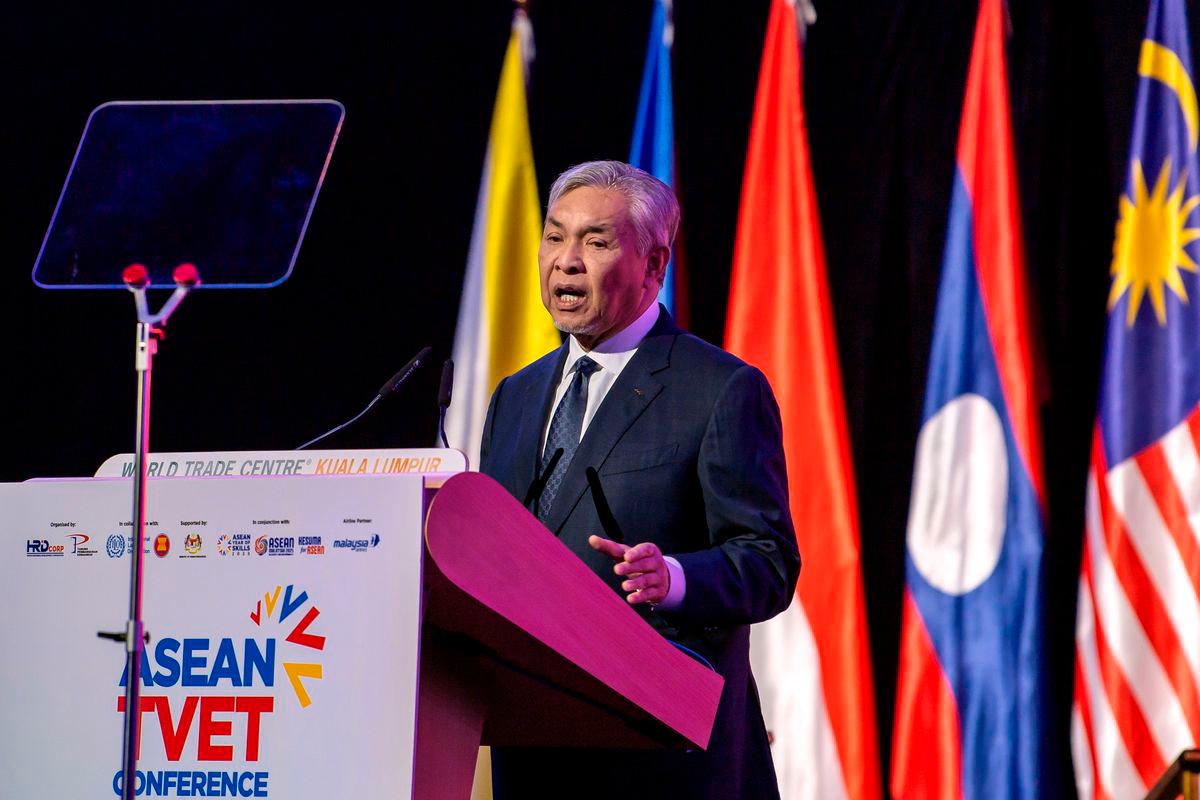KUALA LUMPUR: More than half of Malaysia’s secondary school leavers in 2024 (53.56%) chose Technical and Vocational Education and Training (TVET) as their first option, signalling a major shift in education preferences, Deputy Prime Minister Datuk Seri Dr Ahmad Zahid Hamidi said yesterday
Speaking at the Asean TVET Conference 2025 at the World Trade Centre Kuala Lumpur, Ahmad Zahid said over 430,000 students are enrolled in TVET institutions nationwide, supported by reforms aimed at aligning training with industry needs.
“Our graduate employability now stands at 95.1%, a clear sign that skills training is finally matching job opportunities. And in just our second year, applications to enrol in national TVET institutions have surged past 200,000,” he said.
Appointed as chair of the National TVET Council in 2023, Ahmad Zahid said his mandate was to integrate policy, industry and people into a coordinated national effort.
He acknowledged that the system previously suffered from fragmented governance, inconsistent standards and a mismatch between training and market demand.
He said to address these challenges, three guiding pillars were adopted – integrating the efforts of 12 ministries under a unified vision, ensuring industry relevance in skills training and promoting inclusivity so that no community is left behind.
These initiatives have led to the launch of the National TVET Policy 2030, the TVET Big Data System and the TVET Madani Portal, which centralise access to institutions, courses and career pathways.
A new UP_TVET application system also allows students to apply across ministries without bureaucratic barriers.
Malaysia has introduced TVET certification levels equivalent to higher education qualifications (Levels 6 to 8) and expanded minimum wage coverage to include semi-skilled and TVET graduates under the Malaysian Standard Classification of Occupations Code 8 and above.
Ahmad Zahid said the impact is already visible through individual success stories.
“From a fisherman’s son who now works as a drone technician mapping padi fields with precision, to an Orang Asli daughter leading solar installations that light up her village, and a former factory worker who owns a welding workshop employing 12 others.
“I believe these are proofs that skills do more than change lives; they create livelihoods,” he said.
Ahmad Zahid described TVET as the “engine of regional competitiveness”, aligning with Prime Minister Datuk Seri Anwar Ibrahim’s vision in the 13th Malaysia Plan to place TVET at the heart of national growth.
“He envisions TVET as a driver for our high-growth, high-value sectors – from semiconductors and AI to renewable energy and the digital economy.
“Hence, we are embedding TVET into Malaysia’s most strategic industrial zones – from the Johor–Singapore Special Economic Zone to Kulim Hi-Tech Park, Kerian Integrated Green Industrial Park and the Sabah–Sarawak growth corridors – ensuring that the supply of skills meets investment demand at its very source,” Ahmad Zahid said.









